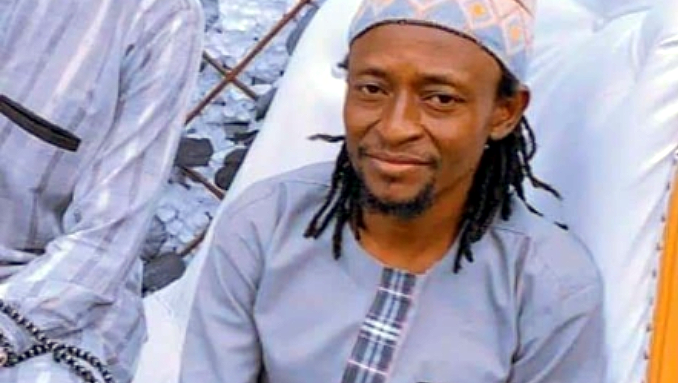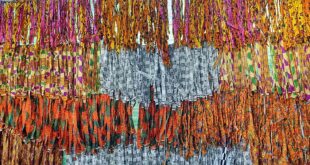Our contributing editor and Duesseldorf-based journalist Tina Adomako writes on the deteriorating climate for human rights and democracy in the West African country that traditionally enjoys the image of a role model for democratic governance in the continent
Ibrahim Kaaka Mohammed – better known as Kaaka – was part of a group of civil society activists in Ghana. Using the hashtag #FixTheCountry, they have been calling on the government to fight corruption, address the country’s development and to provide jobs. In short: to solve the country’s most pressing problems.
The activists have long been a thorn in the side of the government. On June 25th, Kaaka was beaten up by a group of unknown men in front of his house in Ejura in the Asante region of Ghana, and died soon after. According to some local media outlets, prior to his death Kaaka had received threats from the Ejura Municipal Chief Executive for posting critical comments about the government on his Facebook page and thus bringing the ruling party into discredit.
Kaaka’s death sparked a wave of protests in the small town about 100 km north of the regional capital Kumasi. The day after his funeral, mostly young people took to the streets and demonstrated not only because of the murder of Kaaka, but also because more and more voices are being silenced under the Nana Akufo-Addo government. [Editor’s Note: An eye-witness has meanwhile alleged that Kaaka was murdered by his brother.]
When in 2020, people all over the world were protesting the murder of George Floyd and were joining in #BLM demonstrations, in Ghana, though the president had been one of the first to come out with a statement sympathising with Floyd’s family, the #BLM demonstration in Accra was stopped by the police. Hardly had the demonstrators gathered at Black Star Square, when police troops were sent to break up the demonstration. The protesters were beaten by the police and the organizer of the demonstration, Ernest Yeboah, was arrested at the time.

Similarly, in Ejura on June 29th. This time, not only police but also the military were deployed to stop the demonstration. Although not a single demonstrator was armed, the soldiers opened fire. Two young people were shot dead, several seriously injured and still in critical condition in hospital.
In the era of social media, such news naturally travels fast. But the next day, June 30th. the country’s largest newspaper, the Daily Graphic, did not mention the incident at all. It took over 24 hours for the President’s office to send out a press release. In it the President expressed his regret over the deaths and stated that he expects complete clarification by July 9th.
It was not until July 6th , however, that the first public hearing on the investigation into the shootings in Ejura took place in the regional capital Kumasi. At the very same time, thousands had gathered in the nation’s capital Accra to express their growing dissatisfaction with the government.
The demonstration, organized by the youth wing of the opposition party NDC, was initially not approved “for Covid-related reasons”, but the demonstrators were determined to take to the streets, with or without approval.
“We intend to demonstrate and tell this government about our misgivings about happenings in this country. It is going to be a very peaceful march. We are marching for justice for our fallen brothers and sisters, to tell this government to fix the country, and create enough jobs for young people. We want the culture of silence to be broken and insecurity within the country tackled.” said the NDC’s National Youth Organiser, George Opare Addo.
The protesters marched through the main streets towards Jubilee House, the official residence of the President. They carried posters with inscriptions like “#WeAreAllKaaka”, “#Ghanaian lives matter”, “No justice for the dead” and “Kum yƐn prƐko” (kill us immediately).
As the crowds marched through the streets of the capital, Erastus Asare Donkor, the reporter from Joy News, who had been the first to cover the demonstration in Ejura, was a witness at the public hearing. Citi TV , a private media outlet, broadcast the hearing live and anyone watching the proceedings could only see the questioning as a farce. Hardly anyone believes that by the deadline set by the president any results will be had.
Donkor appeared to be the accused, having to answer questions like: “Would you agree that the perspective from which the film is being filmed can show a falsified image?”
In his live coverage from the midst of the chaos with bullets flying and people running for their lives, Donkor had spoken of kneeling soldiers who were firing into the crowd of unarmed demonstrators. The judge had obviously looked at the footage and seen that the soldiers were crouching rather than kneeling. This question and others that followed, as well as the judge’s comments were obviously aimed at portraying the media as manipulative and lacking in credibility– when for example the judge suggested that anyone who could not distinguish between a kneeling and a crouching soldier might also not have seen whether the demonstrators had been carrying weapons or not. He also suggested that it may have been media coverage of Kaaka’s murder that triggered the demonstration.
One must note that the hearing is supposed to clarify how the shootings came about and who is responsible for them. The media is not on trial. The fact that security forces opened fire on civilians killing two and injuring several more is undisputed.
The government likes to portray Ghana as a democratic and peaceful country and this is also the way the country is often perceived in the western media. However, under the current government, democracy is fast crumbling, freedom of expression is increasingly being restricted as fundamentalist ideas spread.
Meanwhile, Akufo-Addo continues to enjoy a good reputation in Germany, while the corruption he set out to reduce has only gotten worse during his tenure. The prospects for the youth as well. According to a World Bank report, youth unemployment is at 12% while 50% of young people are underemployed. Both numbers are above the average for sub-Saharan Africa*.
If freedom of expression is being restricted in one of the supposedly most democratic and peaceful West African countries, that is cause for great concern. Ghana has long been considered a factor of stability in the region. If that changes, woe to all of West Africa.
——–
*(Source: Worldbank Press Release NO: 2021/045/AFR and https://www.worldbank.org/en/news/press-release/2020/09/29/addressing-youth-unemployment-in-ghana-needs-urgent-action)
 THE AFRICAN COURIER. Reporting Africa and its Diaspora! The African Courier is an international magazine published in Germany to report on Africa and the Diaspora African experience. The first issue of the bimonthly magazine appeared on the newsstands on 15 February 1998. The African Courier is a communication forum for European-African political, economic and cultural exchanges, and a voice for Africa in Europe.
THE AFRICAN COURIER. Reporting Africa and its Diaspora! The African Courier is an international magazine published in Germany to report on Africa and the Diaspora African experience. The first issue of the bimonthly magazine appeared on the newsstands on 15 February 1998. The African Courier is a communication forum for European-African political, economic and cultural exchanges, and a voice for Africa in Europe.





























